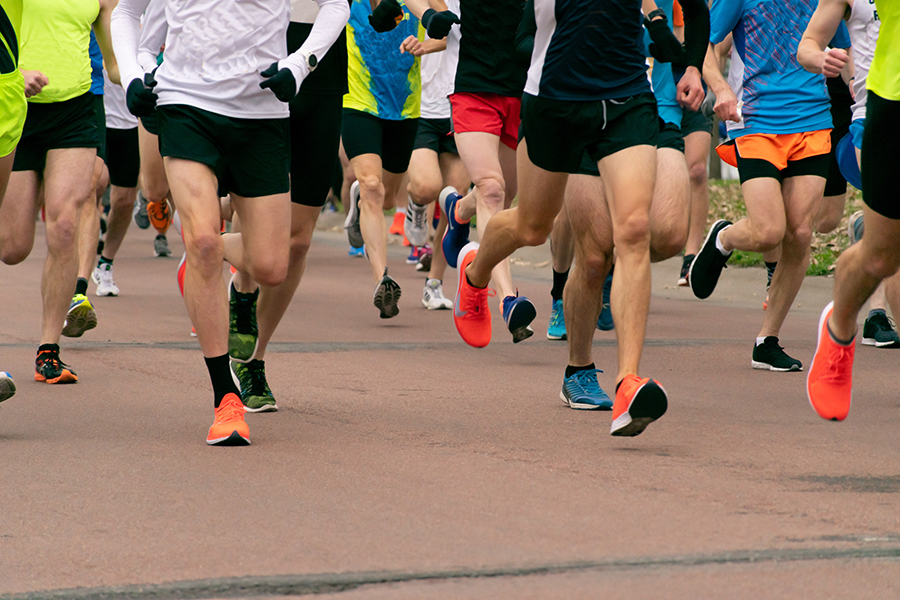
Turkey trot races have become a popular Thanksgiving tradition for families seeking a festive start to the holiday.
Early data from online platform RunSignup points to another record-breaking day in 2025, as more than 1.1 million participants are expected to race on Thanksgiving.
Turkey trots can provide a multitude of nutritional benefits, boosting metabolism and improving digestion as many families expect to consume large portions of food on a day dedicated to giving thanks and overeating. They have also become annual events that bring families together in a shared activity that is seen as both fun and mentally beneficial.
Florida State University’s Jennifer Farrell is a clinical professor and program director for the Didactic Program in Dietetics (DPD). She specializes in children’s nutrition, teaching both children and caregivers how to make smart food choices and override societal cues that tend to stray from healthy decision making.
The DPD program is fully accredited by the Accreditation Council for Education in Nutrition and Dietetics. It is one of four undergraduate majors in the FSU Department of Health, Nutrition, and Food Sciences in the Anne Spencer Daves College of Education, Health, and Human Sciences. DPD provides a foundation for developing knowledge and competencies in the core areas of dietetics practice, including clinical dietetics, community nutrition and food service/systems management.
According to Farrell, participation in turkey trot races provides nutritional advantages.
“During a bout of exercise our body burns more calories. Interestingly, our body’s metabolism stays elevated even after exercising,” Farrell said. “A 2011 study published in Medicine and Science in Sports and Exercise showed that metabolic rate can remain elevated as long as 14 hours after 45 minutes of vigorous exercise. This is known as the afterburn effect. Even if your turkey trot is a turkey walk, you are still reaping the benefits.”
Media interested in analyzing the nutritional benefits of turkey trot races may contact clinical professor Jennifer Farrell via email at jefarrell2@fsu.edu.
Jennifer Farrell, program director for the Didactic Program in Dietetics
How does a turkey trot race benefit the body?
When we exercise, our muscles need more energy. Glucose (sugar) is quickly removed from our blood stream to fuel our muscles and replenish glycogen. Exercise is good for everybody, but particularly important to help control blood glucose for those with type 2 diabetes. Exercise also increases blood flow throughout the body, which includes our gastrointestinal tract. Walking or running uses core muscles which can help keep our gastrointestinal tract healthy. Moderate exercise can help digestion and the movement of food through our intestines. However, eating too soon before or after intense exercise can cause stomach cramps and bloating.
How beneficial is it for children to take part in a turkey trot, or even a 5K to 10K race in general? Is there a particular age range you’d recommend for running these types of races?
The turkey trot is a great way to get kids interested in exercise and fitness. Exercise helps kids feel comfortable in their body which is beneficial for their self-esteem. It is important to let kids exercise to their comfort level; this decreases the risk of injuries and increases their enjoyment. Gulfs Winds offers a 1K turkey trot which is a great distance for littles or those who aren’t ready for a 5K.
What advice do you have on exercise as it relates to eating meals? Do you feel exercising right before or right after a meal has benefits?
Timing of meals and exactly what to eat before or after training has been a hot topic for research. This gave rise to the large market of pre and post workout supplements. Fasted workouts tends to be another area of interest. Research protocol tends to be highly specific. Subjects are of similar age and health status, doing similar exercise and looking for benefits with a specific nutrient and timing protocol. This is difficult to extrapolate to a person who doesn’t match those health or workout criteria. A colleague of mine once said, “The best workout and feeding protocol is one where you feel best working out.” If you can’t exercise at your best because of timing or food or what you are eating, then it is not the right method for you.



